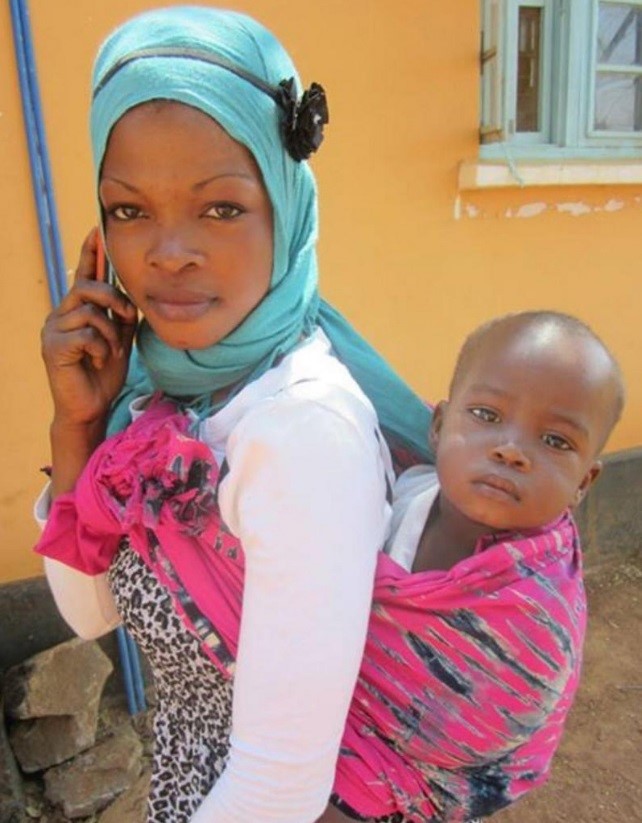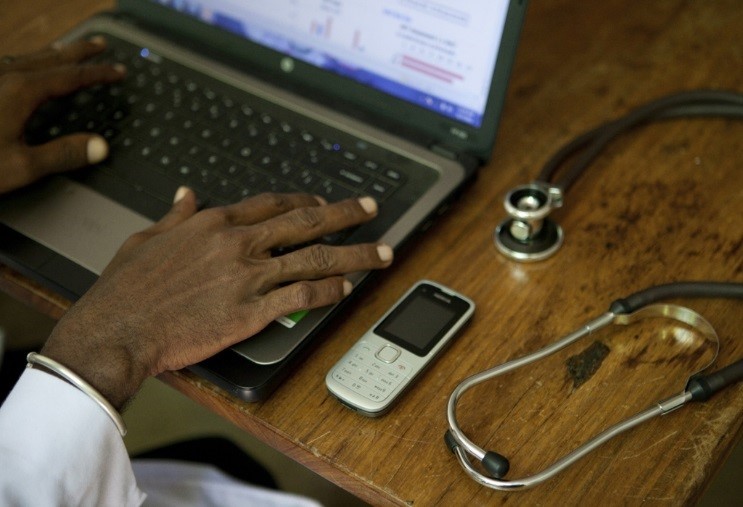FROM THE FIELD

Saving Expectant Mothers and Children:
Widespread Partnerships Achieve Innovations in Health
By Vance Whitfield, Cardno PPP Manager and P4 Communications Manager
In sub-Saharan Africa, gaps in health systems place heavy burdens on mothers, infants and children, leading to high mortality rates. But new-to-market innovations are injecting hope into the fight against major public health threats, including HIV and Ebola.
And these innovations are reaching vulnerable people through extensive public-private partnerships (PPPs).
Through the President’s Emergency Plan for AIDS Relief (PEPFAR), the U.S. government invests in programs that business partners contribute to, with innovations that cleverly respond to health systems gaps. Strategic information technologies emerged as go-to solutions for U.S. global health experts.
| |
 |
| |
With regular reminders from Tanzania’s mobile
health partnership of public and private
organizations, a mother and child come to a
health clinic for timely checkups.
|
Cardno health and PPP specialists offer clients – the U.S. Centers for Disease Control and Prevention (CDC) and the Office of the U.S. Global AIDS Coordinator (OGAC) – unique and varied services and tools that promote their effectiveness and efficiency.
Cardno’s project – the Public-Private Partnerships in PEPFAR Countries (P4) – helps countries maintain and expand existing partnerships. It also assists in identifying business partners that can enhance country ownership and shared responsibility.
In Botswana, with partner Botho University, the District Health IT Officers’ partnership strengthened the functionality of the country’s I.T. infrastructure across 28 health districts, enabling them to report results faster and use locally-generated data for health programming, diagnostics and treatment.
On-time reporting by Botswana’s district health facilities increased from 31 percent to 91 percent during implementation.
“Our health information systems were fragmented before,” said Dr. Ernest Fetogang, Chief Health Officer of Monitoring and Evaluation with the Ministry of Health. “And now, we have been able to integrate systems and flow data from the districts to ensure [that] data is captured.”
Digital and mobile platforms are making an impact in strengthening health systems in low- and medium-income countries. These technologies are crucial because of the increased number of public health specialists, managers, service providers and patients who are in need of data for critical decision-making.
Health information systems, health management information systems, electronic integrated disease surveillance and response, and mobile health (mHealth) applications are strategic areas where new technologies are being developed and leveraged.
Since 2012, under the mHealth Tanzania Partnership, the government of Tanzania has sought to reduce high rates of maternal and infant mortality and promote healthy pregnancy and early childhood care for families by leveraging the Healthy Pregnancy, Health Baby Text Messaging Service (also known as Wazazi Nipendeni).
The mobile service sends free, timed antenatal, motherhood and infant healthcare messages to targeted users. This method of consistent, accessible, electronic reminders is a behavioral change method that increases adoption of healthy behaviors and promotes adherence to HIV and AIDS treatment. To date, more than 100 million text messages have been sent to more than 1.5 million registered mobile phone users.
While the mobile service is also available to men, the technology has contributed to improved maternal, newborn and child health.
| |
 |
| |
Cardno’s mobile health partnership project in Tanzania helps to
reduce high rates of maternal and infant mortality and promote
healthy pregnancy and early childhood care. |
“Getting behavioral change information into the hands of vulnerable women and providing access to medical advice helps build the healthy community we want,” said Dr Koheleth Winani from Tanzania’s Ministry of Health, Community Development, Gender, Elderly and Children.
Under the OpenHIE Partnership, an electronic health information exchange was piloted at 15 facilities across Rwanda’s Rwamagana District. The digital platform strengthened the maternal health care system by bringing patients, service providers and health centers onto a single, shared health record system that improved maternal, newborn and child health service offered.
During the program’s pilot, more than 20,000 records were made available at the point-of-care. These health innovations enable real-time and accurate data collection and dissemination. And the network of partners make better health outcomes more attainable globally.